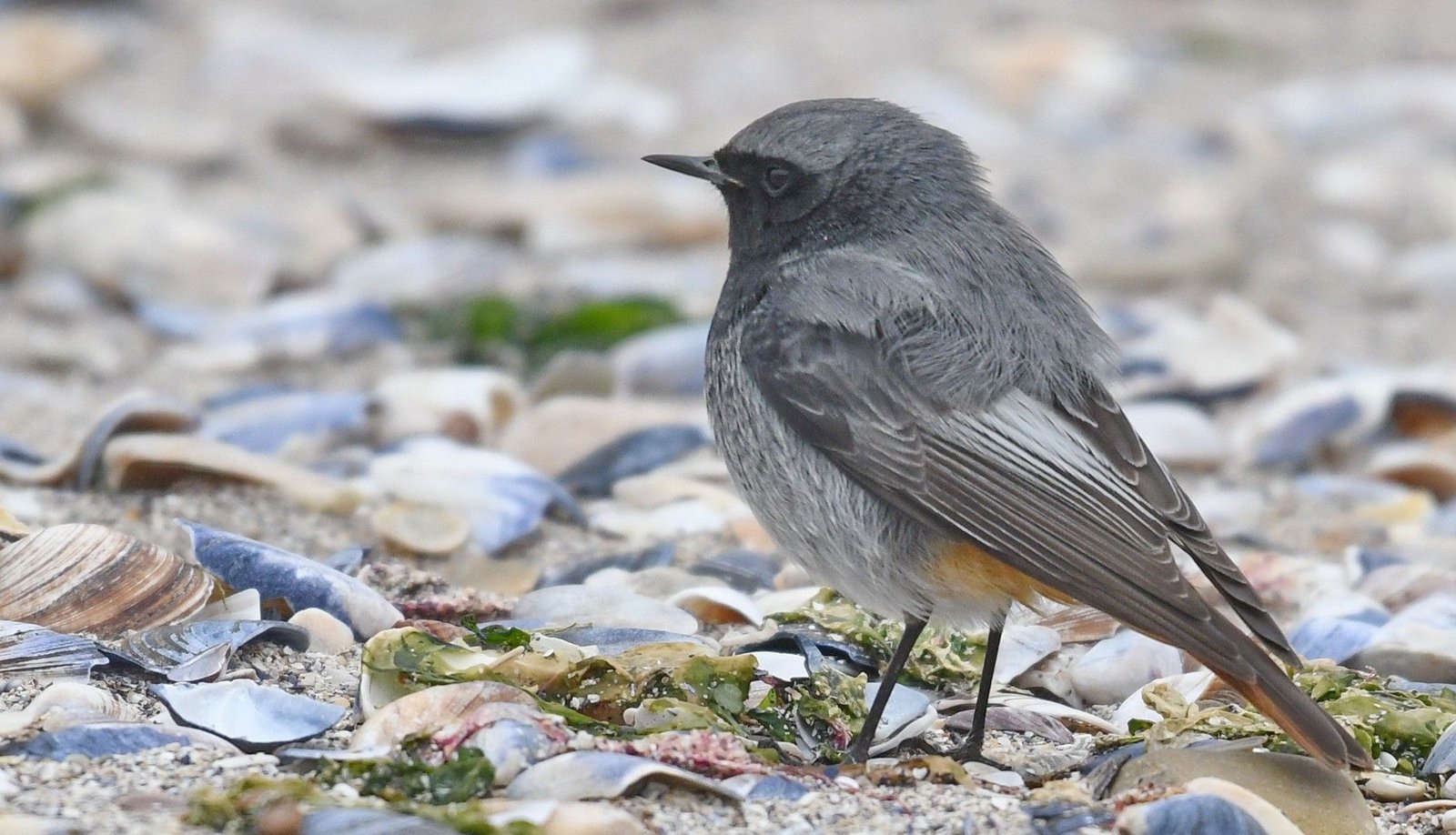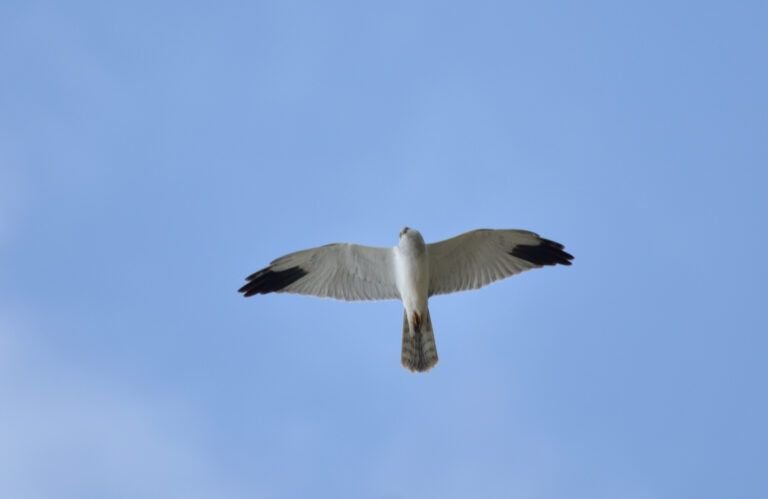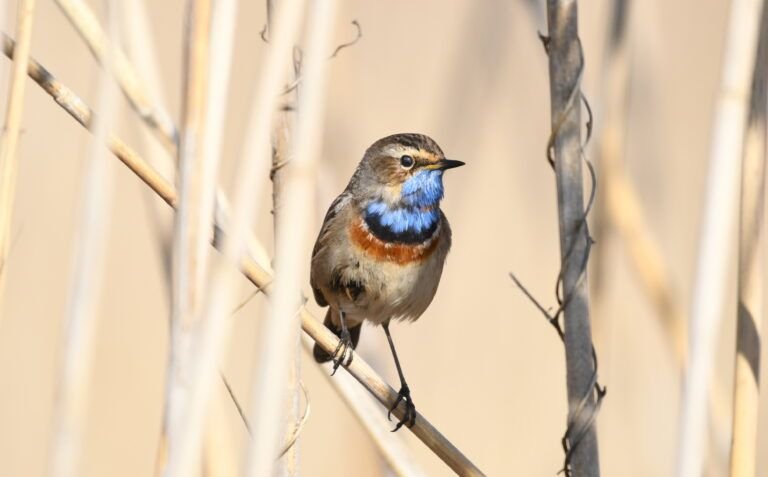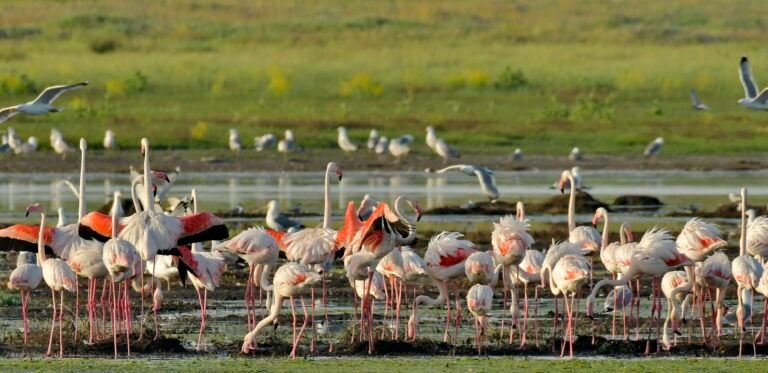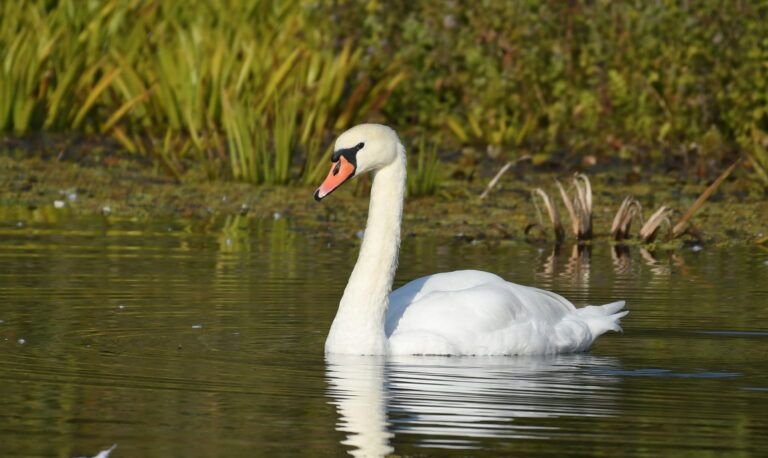The Black Redstart (Phoenicurus ochruros) is a small passerine bird in the redstart genus Phoenicurus. Like its relatives, it was formerly classed as a member of the Thrush family (Turdidae), but is now known to be an Old World flycatcher (Muscicapidae).
This species belongs to a Eurasian clade which also includes the Daurian Redstart, Hodgson’s Redstart, the White-winged Redstart, and maybe the Ala Shan Redstart. The present species’ ancestors diverged from about 3 mya (Late Pliocene) onwards and spread throughout much of Eurasia from 1.5 mya onward. It is not very closely related to the Common Redstart. As these are separated by different behaviour and ecological requirements and have not evolved fertilisation barriers, the two European species can nonetheless produce apparently fertile and viable hybrids.
There are a number of subspecies which differ mainly in underpart colours of the adult males; different authorities accept between five and seven subspecies. They can be separated into three major groups, according to morphology, biogeography, and mtDNA cytochrome b sequence data.
P. o. phoenicuroides group. basal central and eastern Asian forms which diverged from the ancestral stock as the species slowly spread west (c.3-1.5 mya). Females and juveniles light grey-brown.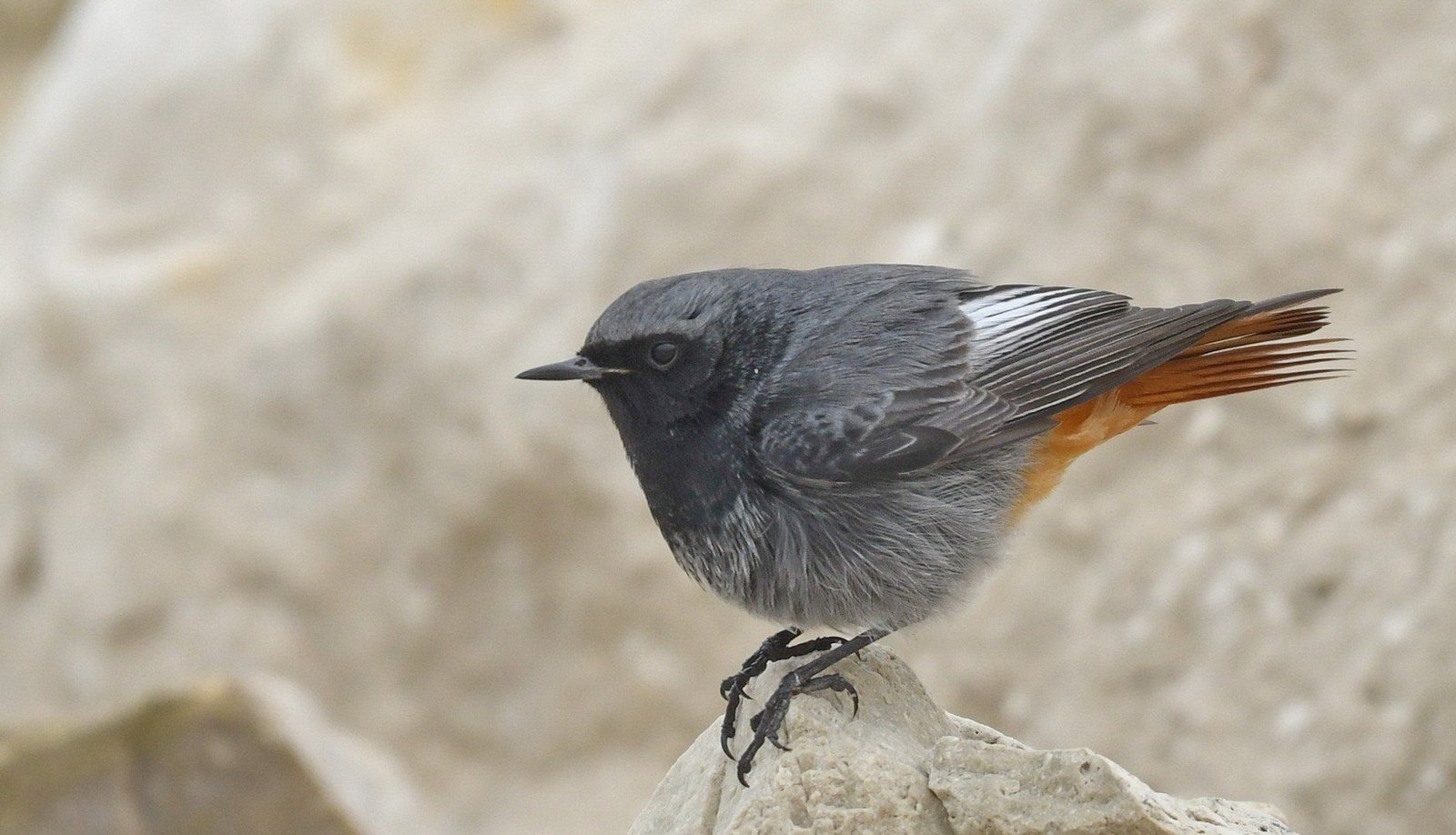
- Phoenicurus ochruros phoenicuroides. Tian Shan eastwards to Mongolia. Small; adult males have lower breast, belly and flanks deep rufous, pale wing-patch absent, sometimes white forehead. Overall quite similar to a much darker Common Redstart with black chest. Females and juveniles are similar to Common Redstart but have an overall sandier, paler colour and often a distinct buff eye-ring.
- Phoenicurus ochruros rufiventris. Turkmenistan eastwards through Pamir and Alay Mountains to Himalaya. Usually large; adult males like P. o. phoenicuroides, but darker overall, with black back and rufous-chestnut underside. Females with rufous tinge to underside. Exact limits with P. o. phoenicuroidesunresolved.
- Phoenicurus ochruros xerophilus. China east of and between ranges of preceding two. Large; colour pattern like P. o. phoenicuroides but paler. Included in P. o. rufiventris by many authorities.
P. o. ochruros group. Western Asian forms, whose lineage separated from the gibraltariensis group c.1.5-0.5 mya. Females and juveniles intermediate.
- Phoenicurus ochruros ochruros. Eastern Turkey, Alborz, and Caucasus. Small, somewhat intermediate between P. o. phoenicuroides and P. o. gibraltariensis. Generally like latter, but rufous underside, pale wing patch weakly developed.
- Phoenicurus ochruros semirufus. Levant. Small; adult males somewhat similar to rufiventris except in size. Black areas extensive.
P. o. gibraltariensis group. European population, which formed as a distinct subspecies probably during the last ice age. Females and juveniles dark grey.
- Phoenicurus ochruros gibraltariensis. Western Europe east to the Crimeaand western Turkey. Neck, upper back and shoulders dark slate grey to black in adult males, lighter than face and neck, pale wing patch strongly developed.
- Phoenicurus ochruros aterrimus. Iberia and Morocco. :Neck, upper back and shoulders black in adult males. Wide intergradation with P. o. gibraltariensis and treated as a synonym of it by many authorities.

- Phoenicurus ochruros aterrimus. Iberia and Morocco. :Neck, upper back and shoulders black in adult males. Wide intergradation with P. o. gibraltariensis and treated as a synonym of it by many authorities.
The Black Redstart is 13–14.5 cm in length and 12–20 g in weight, similar to the Common Redstart. The adult male is overall dark grey to black on the upperparts and with a black breast; the lower rump and tail are orange-red, with the two central tail feathers dark red-brown. The belly and undertail are either blackish-grey (western subspecies; see Systematics, below) or orange-red (eastern subspecies); the wings are blackish-grey with pale fringes on the secondaries forming a whitish panel (western subspecies) or all blackish (eastern subspecies). The female is grey (western subspecies) to grey-brown (eastern subspecies) overall except for the orange-red lower rump and tail, greyer than the Common Redstart; at any age the grey axillaries and underwing coverts are also distinctive (in the Common Redstart these are buff to orange-red). One-year old males are similar to females but blacker; the whitish wing panel of the western subspecies does not develop until the second year.
It is a widespread breeder in south and central Europe and Asia and northwest Africa, from Great Britain and Ireland (where local) south to Morocco, east to central China. It is resident in the milder parts of its range, but northeastern birds migrate to winter in southern and western Europe and Asia, and north Africa. It nests in crevices or holes in buildings.
In Britain it is most common in as a passage and winter visitor, with only 20–50 pairs breeding. On passage it is fairly common on the east and south coasts, and in winter on the coasts of Wales and western and southern England, with a few also at inland sites. Migrant Black Redstarts arrive in Britain in October or November and either move on or remain to winter, returning eastward in March or April. They also winter on the south and east coasts of Ireland.
The species originally inhabited stony ground in mountains, particularly cliffs, but since about 1900 has expanded to include similar urban habitats including bombed areas during and after World War II, and large industrial complexes that have the bare areas and cliff-like buildings it favours; in Great Britain, most of the small breeding population nests in such industrial areas. It will catch passing insects in flight, and migrants often hunt in coastal tide-wrack for flies or tiny crustaceans. Its quick ducks of head and body are robin-like, and its tail is often flicked. The male has a rattling song and a tick call.
Eastern race birds are very rare vagrants in western Europe.

